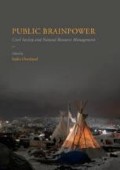Abstract
The influence of civil society on the governance of Qatar’s natural gas sector appears to be growing, but it still remains marginal. According to this chapter, the primary civil-society actors are found in academia, think-tanks and NGOs, followed by companies engaged in joint ventures. The mass media have a lesser bearing, but within the social media, the government has shown itself responsive to societal concerns about how resources are managed and allocated. Political parties and trade unions are currently illegal in Qatar, but their part in influencing how revenues are used may change in the future if the constitution is fully implemented and an elected legislative chamber is established. Especially pertinent is the role of extended tribal family networks, whose concerns or opinions on the perceived mismanagement of oil and gas revenues are expressed through informal channels. The marginal role of civil society is changing, however, as awareness about how energy wealth is spent has grown. Access to statistics, social media and government as well as non-governmental reports has fostered greater civil awareness and feedback on petroleum revenue expenditure. A notable feature of the way that Qatar’s petroleum revenues have been used is the considerable government investment in promoting the country’s international standing, by hosting international events, establishing subsidiaries of well-known Western academic institutions and creating the Al Jazeera media network. Thus, it seems paradoxical that Qatari civil society is still little engaged in the formulation of petroleum policy.
Access this chapter
Tax calculation will be finalised at checkout
Purchases are for personal use only
References
Al-Taie, A. 2012. Qatar National Research Fund Leading the Way to Promote Energy Research in the Gulf Region. QScience Proceedings (7): 1–30.
Bahry, L., and P. Marr. 2005. Qatari Women: A New Generation of Leaders? Middle East Policy 12 (2): 104–119.
Crystal, J. 1995. Oil and Politics in the Gulf: Rulers and Merchants in Kuwait and Qatar. Cambridge: Cambridge University Press.
Fromherz, A.J. 2012. Qatar: A Modern History. Washington, DC: Georgetown University Press.
Gengler, J., M. Tessler, D. Al-Emadi, and A. Diop. 2013. Civic Life and Democratic Citizenship in Qatar: Findings from the First Qatar World Values Survey. Middle East Law and Governance 5 (3): 258–279.
Hults, D.R., M.C. Thurber, and D.C. Victor. 2012. Oil and Governance: State-Owned Enterprises and the World Energy Supply. Cambridge: Cambridge University Press.
Joffe, E.G.H. 1994. Relations between the Middle East and the West. The Middle East Journal 48 (2): 250–267.
Kamrava, M. 2009. Royal Factionalism and Political Liberalization in Qatar. The Middle East Journal 63 (3): 401–420.
———. 2013. Qatar: Small State, Big Politics. Ithaca, NY: Cornell University Press.
Mitchell, J.S. 2013. The Politics of Legitimacy in Qatar. Dissertation. Washington, DC: Georgetown University.
Onley, J. 2004. The Politics of Protection in the Gulf: The Arab Rulers and the British Resident in the Nineteenth Century. New Arabian Studies 6: 30–92.
Sato, S. 2009. Britain’s Decision to Withdraw from the Persian Gulf, 1964–68: A Pattern and a Puzzle. Journal of Imperial and Commonwealth History 37 (1): 99–117.
Ulrichsen, K.C. 2014. Qatar and the Arab Spring. Oxford: Oxford University Press.
Uthman, N. 1984. With Their Bare Hands: The Story of the Oil Industry in Qatar. London: Longman.
Wright, S. 2012. Foreign Policy in the GCC States. In International Politics of the Persian Gulf, ed. M. Kamrava, 72–93. Syracuse, NY: Syracuse University Press.
Author information
Authors and Affiliations
Editor information
Editors and Affiliations
Rights and permissions
Copyright information
© 2018 Springer International Publishing AG
About this chapter
Cite this chapter
Wright, S. (2018). Qatar: The Context of a Hydrocarbon-Funded Social Contract. In: Overland, I. (eds) Public Brainpower. Palgrave Macmillan, Cham. https://doi.org/10.1007/978-3-319-60627-9_14
Download citation
DOI: https://doi.org/10.1007/978-3-319-60627-9_14
Published:
Publisher Name: Palgrave Macmillan, Cham
Print ISBN: 978-3-319-60626-2
Online ISBN: 978-3-319-60627-9
eBook Packages: Political Science and International StudiesPolitical Science and International Studies (R0)

